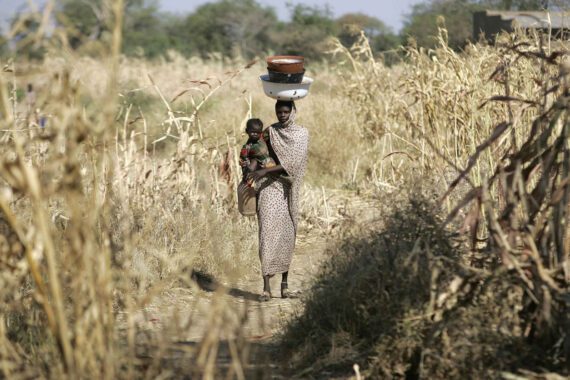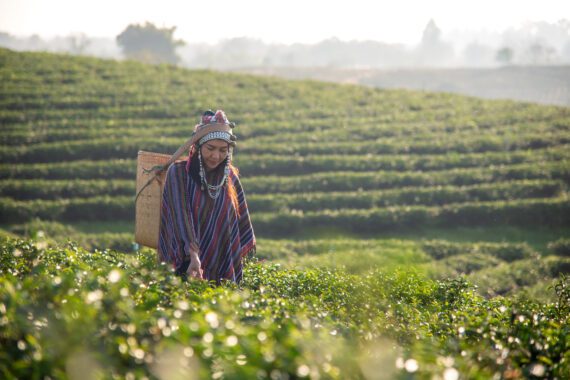Three years have passed since the World Health Organization (WHO) declared the novel coronavirus (COVID-19) a global pandemic.
Bread for the World continues to draw attention to the effects of the COVID-19 pandemic on hunger, malnutrition, and food insecurity, both in the United States and around the world. Bread has called for measures to increase equity, including equitable access to vaccines, in pandemic and post-pandemic responses.
Experts say that the United States will be coping for years to come with the impacts of delayed medical care during the height of the pandemic. We saw hospitals filled beyond capacity with COVID patients, resources and staff shifted to respond to the emergency. As conditions become more like those of the pre-pandemic era, the U.S. healthcare system must respond to a backlog of postponed minor and sometimes major surgeries, along with millions of people struggling with long COVID, a condition still poorly understood.
The consequences that may prove most important in the years to come, however, may be the impacts of hundreds of millions of missed routine screenings for early detection, appointments for treatment of chronic conditions, doses of prescription medications that people couldn’t obtain or afford, and progression of undiagnosed medical problems that people developed during quarantine. Only time will uncover the cumulative impacts.
Lower-income countries, including those with fewer cases of COVID than neighboring countries, face all of these problems as well—but with far fewer resources to implement solutions. Many governments and healthcare providers in Africa last faced decisions of such consequence to so many human lives during the worst of the HIV/AIDS pandemic in the 1990s.
Bread is particularly concerned about one of the most urgent problems: missed vaccinations against childhood diseases. Quarantine mandates and other restrictions, while meant to slow the transmission of COVID-19, also created an enormous gap in protection from preventable diseases. This threatens to exacerbate the impacts of hunger for millions of children. Unvaccinated children, particularly those already struggling with malnutrition, are at enormous risk right now.
Because malnourished children have greatly weakened immune systems, they struggle to fight off childhood diseases and other conditions that most healthy children routinely recover from. Nearly half of all preventable deaths among children under age 5 are due to malnutrition, largely because illnesses and infections are far more dangerous. Children with severe acute malnutrition, a condition that calls for immediate medical attention and treatment with special therapeutic foods, are nine times as likely to die as well-nourished children with the same illness.
In May 2020, WHO announced that at least 80 million children not yet a year old were at risk of missing life-saving vaccinations.
The Lancet reported that rates of vaccination against childhood diseases dropped steeply almost immediately after COVID-19 became a global pandemic. In April 2020, one-third fewer doses of DPT3 vaccine were administered. Moreover, this global average obscures wide regional disparities, including a drop of 57 percent in doses given in Southeast Asia. DPT3 stands for the third dose of Diphtheria, Pertussis, Tetanus vaccine—particularly important because three doses are given in the first year of life to provide full protection.
A sharp drop in rates of vaccinations against measles is perhaps even more alarming. In 2021, a record high of 40 million children missed either their first or second dose of measles vaccine—both essential for protection. “Herd immunity” requires 95 percent coverage. In 2021, the two-dose global coverage rate was 71 percent.
Healthcare systems around the world are making efforts to catch up, with results that vary by country. But the record number of children not protected against measles “shows the profound damage immunization systems have sustained during the COVID-19 pandemic,” said Dr. Rochelle P. Walensky, director of the U.S. Centers for Disease Control (CDC).
The global community should make vaccination “catch-up strategies” a high priority and help bolster national efforts. Identifying children who are most likely to have missed coverage, who include rural children typically served by mobile vaccination clinics, is part of providing targeted catch-up services, services that are “essential to full recovery,” according to CDC’s statement of November 23, 2022.
Michele Learner is managing editor, Policy and Research Institute, with Bread for the World.



